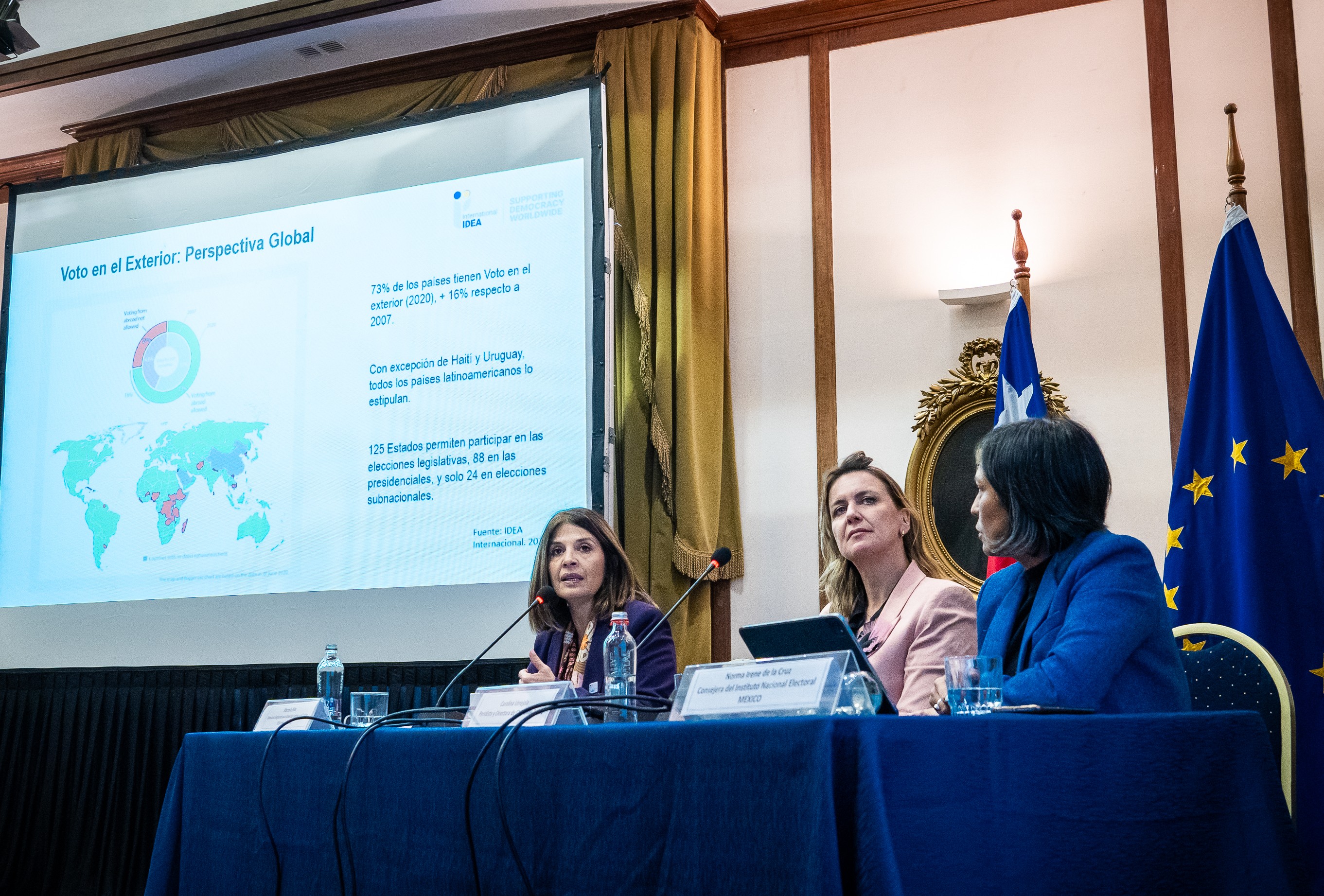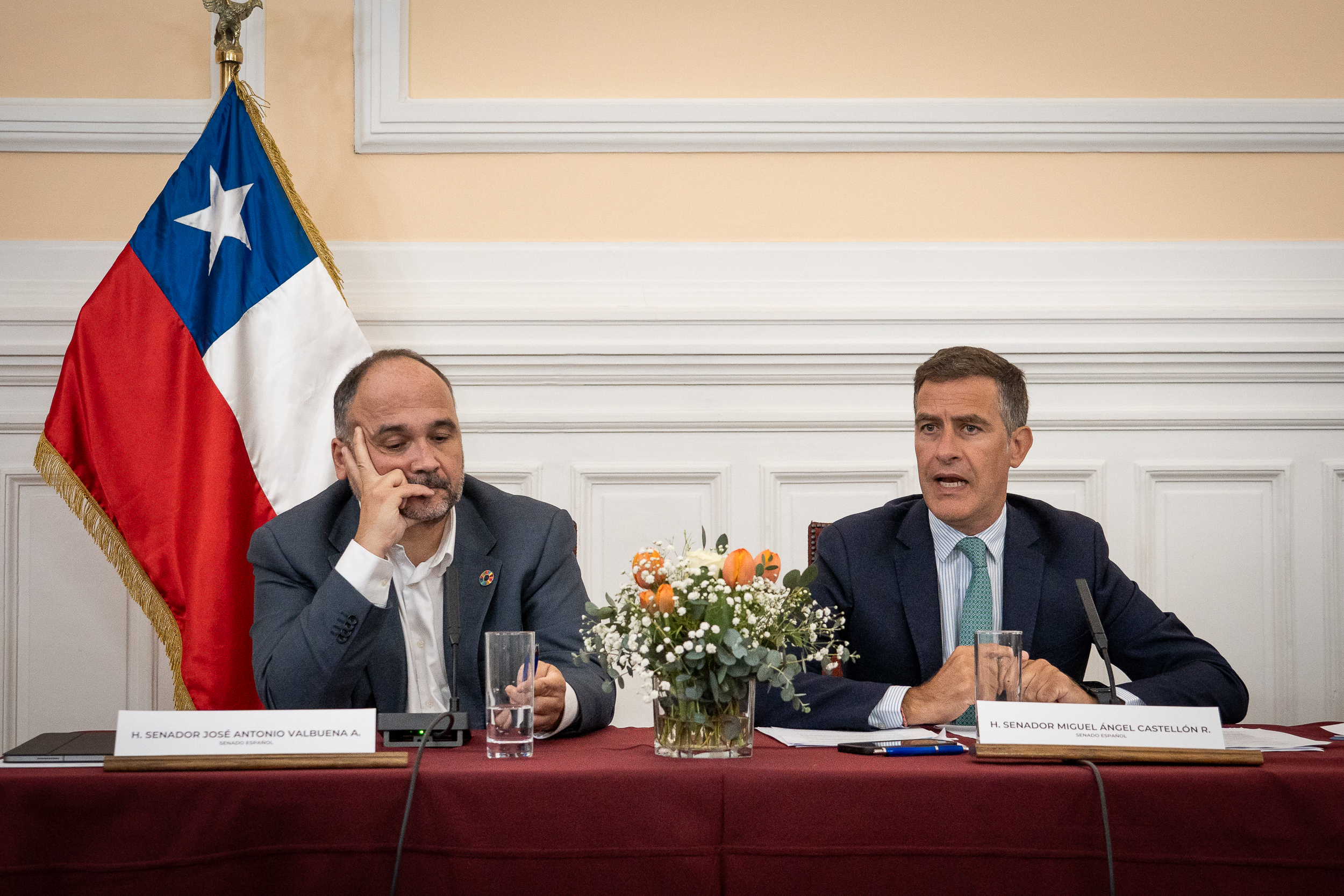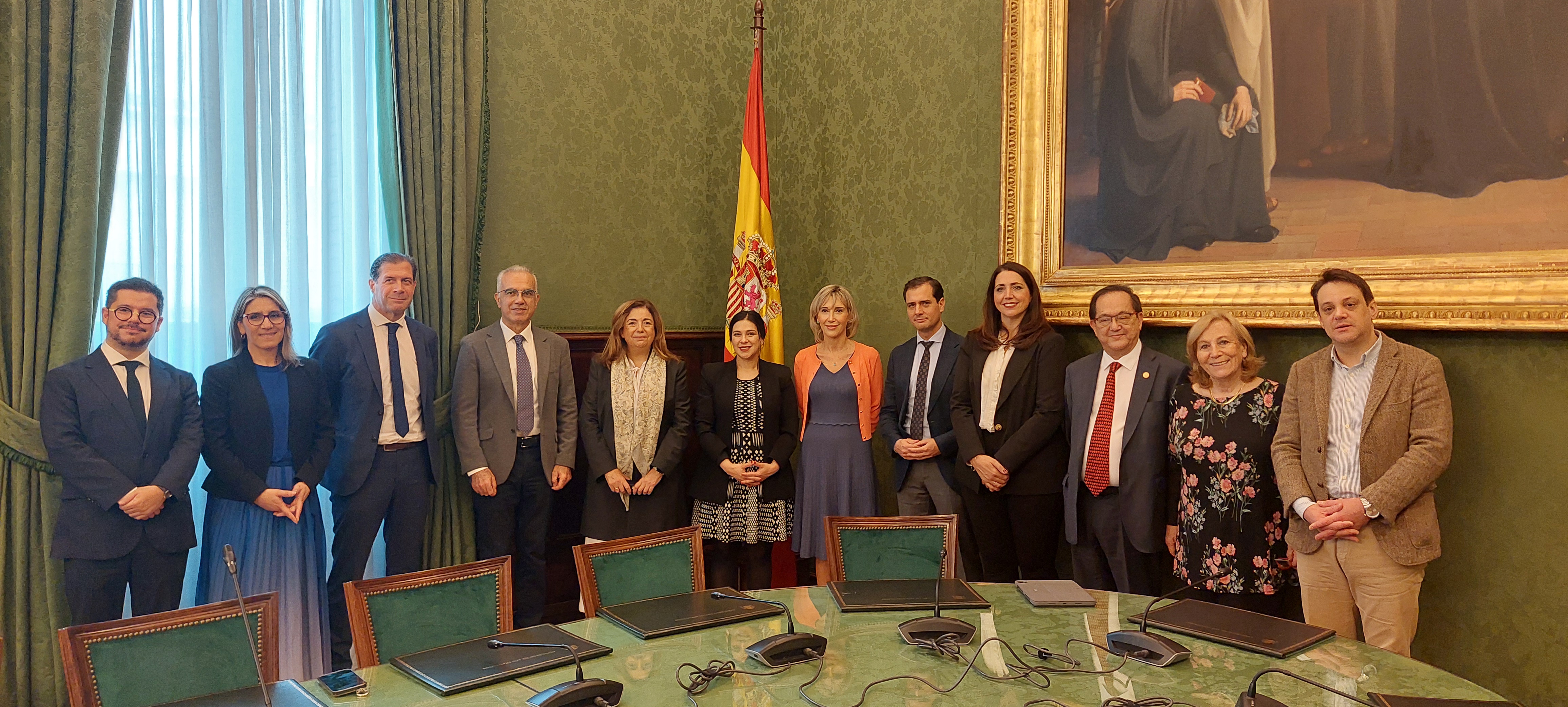In December 2010, the Tunisian people ignited a process of change that has impacted all of North Africa.
Búsqueda
Region
Country
Type
Local governance, decentralization and democracy are key components of the traditional Ghanaian institution of chieftaincy.
This paper examines Botswana’s regions and how they have addressed issues of governance and leadership, service delivery, development and democratic accountability. It focuses on the historical kingdoms that were converted into chiefdoms during the colonial era and later into districts after Botswana’s independence in 1966.
This paper analyses diversity in Indonesian local politics and how it affects the country’s democracy and governance.
Desde el año 2009, el Instituto para la Democracia y la Asistencia Electoral (IDEA Internacional) y la Entidad de la ONU para la Igualdad de Género y el Empoderamiento de la Mujer (ONU Mujeres) han venido impulsando de manera conjunta la realización de monitoreos de medios con enfoque de género durante campañas electorales en diferentes países.
Since 2011, International IDEA has led a global initiative called “Protecting Legitimacy in Politics”, looking at the threats transnational crime pose to the legitimacy of democratic politics around the world, including in the Baltic States and Latin America.
This Discussion Paper seeks to identify and document how different modalities of democratic accountability are linked to improved service delivery in developing democracies.
The work extends an agenda proposed by International IDEA’s Democracy and Development Programme to better understand the workings of accountability mechanisms.
According to the Millennium Development Goals 2012 Report, the proportion of seats held by women in single or lower houses of national parliaments in North Africa rose from 3 per cent in 2000 to 11 per cent in 2012.
An effective electoral justice system is a key element in the unfolding of a free, fair and genuine democratic process.
Without a system to mitigate and manage inequality or perceptions of inequality, even the best management of an electoral process may lead to mistrust in the legitimacy of the elected government.
El Instituto de Investigaciones Jurídicas de la UNAM, el Instituto de Estudios Legislativos “Belisario Domínguez” del Senado de la República, y el Instituto Internacional para la Democracia y la Asistencia Electoral (IDEA Internacional) sumaron voluntades y recursos a efecto de organizar un importante seminario académico, realizado a finales del año 2010.
All electoral management bodies face challenges when organizing democratic elections. Depending on the context, these may relate to security, political, logistical, financial or other risks. As a result, electoral management bodies (EMBs) are continuously improving practices in order to strengthen their independence, impartiality, integrity, transparency and professionalism, and thus ensure credibility of election results.
The Electoral Assistance Unit (EAU) implements the electoral assistance provided by the Economic Community of West African States (ECOWAS).
The EAU responds to the practical realities of West African states and takes pro-active measures to facilitate good practices within electoral management bodies in ECOWAS member states. The ultimate aim is to ensure the integrity of elections.
Regional organizations are in a delicate position when it comes to encouraging electoral integrity.
On the one hand, encouraging a free and fair electoral process necessarily means supporting a viable, competitive opposition. On the other hand, support for the opposition can easily be construed as bias and interference in the domestic political process.
Election observation bodies have paid increasing attention to the problems generated by electronic voting, or, in more general terms, by the use of electronic means as a way to improve traditional electoral processes.
This Discussion Paper provides a detailed analysis of involvement of the Pacific Islands Forum (PIF) in election observation.
Its main purpose is to present practical and forward-looking recommendations to improve the effectiveness of the PIF electoral observation missions in supporting electoral processes.
This Discussion Paper analyses the experience of the Asian Network for Free Elections (ANFREL) in electoral observation, in particular looking at the strengths and weaknesses of this regional civil-society led initiative in contributing towards the development of democracy in Asia.
Meanwhile, the Association of Southeast Asian Nations (ASEAN) is considering carrying out elections observation missions in the future.
International election monitoring has become a prominent tool for promoting election integrity and democracy, but several factors raise questions about the validity and effectiveness of international election monitoring.
International election observation (IEO) is increasingly criticized for not adding much to the credibility of elections.
IEO organizations have been open and receptive to the criticism and have responded by increasingly professionalizing their missions.
Regional organizations are among the key actors in present-day international relations. They foster dialogue among states and serve as a platform for the discussion of various transnational economic, political and social issues. They also play an increasingly important role in elections.
Elections are vital to democratic government, but they are not sufficient.
Too often, incumbents rig elections, illicit funding or media bias distort the electoral process, and losing candidates refuse to accept the results. Where elections are marred in these ways, people lose faith in democracy and the political process, and human rights and security are put at risk.


